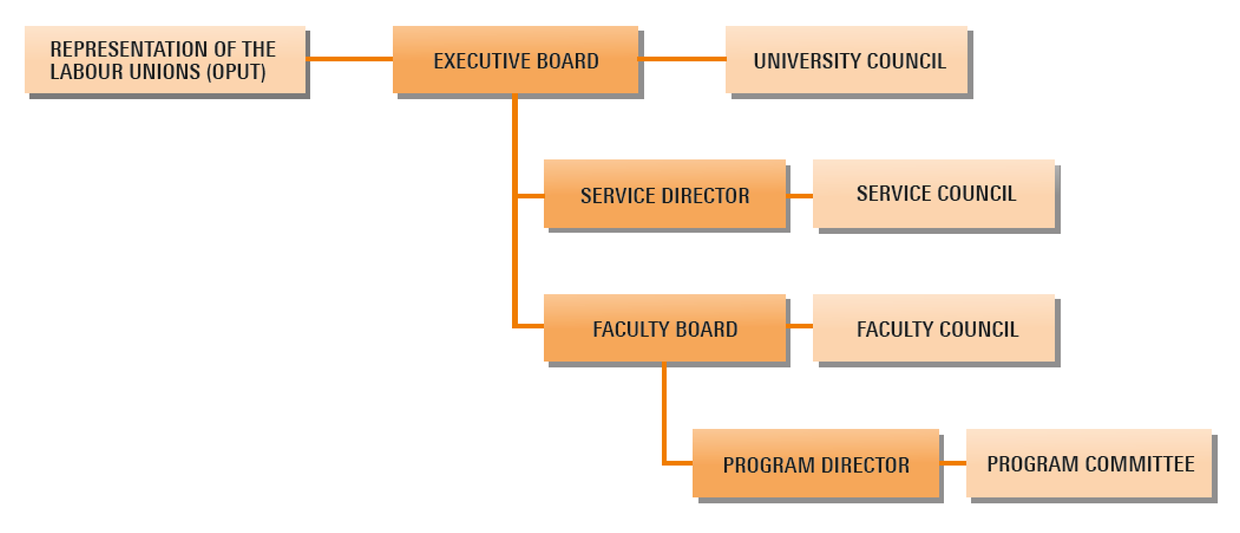Which participation councils do we have at the UT?
Different levels within the UT have their own form of representation. From the democratically elected organisational wide – and best known - University Council to the Programme Committees of which each study have their own representatives. In every one of these bodies, you could have a different area of influence.
Participation at organisation level
University Council
The yearly chosen University Council (UC) represents students and staff throughout the university and discusses regularly with the Executive Board. It is the central participation body of the UT and consists of 18 members: nine staff members and nine students. The UC has a say in the policy of the UT at the central level.
The UC has three permanent committees that discuss topics in detail:
- Primary processes: Committee Education, Research, Students
- The university operations: Committee Finance, Personnel, Business Operations
- Long term policy: Committee Strategy and Internationalization
Local Consultation (generally known as The OPUT)
At the UT, four Labour Unions are united in the Consultative Body for Personnel Affairs of the University of Twente (in Dutch abbreviated to the OPUT). Within the Local Consultation the OPUT-members consult with the Executive Board about topics that affect UT employees such as working conditions, safety, social plan, diversity, or vitality. They ensure that the Collective Labour Agreement for Dutch Universities is implemented at the UT.
Find out more about the OPUT
At the University of Twente, there is also an interest group for PhD students. They are organised in the P-NUT
Participation in faculties
Faculty Councils
All five faculties have a representative body in which both staff and students are represented. The council can issue a solicited or an unsolicited advice to the Faculty Board. As a member of this council, you will encounter strategic topics and policies, budgets, and long-term plans together with the dean and the Faculty Board. Whether you are staff member or student your insight is critical to the Faculty Council.
Participation in Service councils
Service councils
The interests of the employees of the central services are represented in Service Councils. This participation body only consists of staff members. Besides discussing the yearly calendar with fixed topics and supporting the head(s) of the Service Department, as a Service Council you ensure you know what is going on within your service Department. Consider yourself as an ambassador of your colleagues.
Participation in programmes
Programmes Committees
Every study programme or group of programmes has a Program Committee. As a program committee member, you consult regularly with the Program Director. Together with colleagues and students you ensure the quality of education of your study program.




